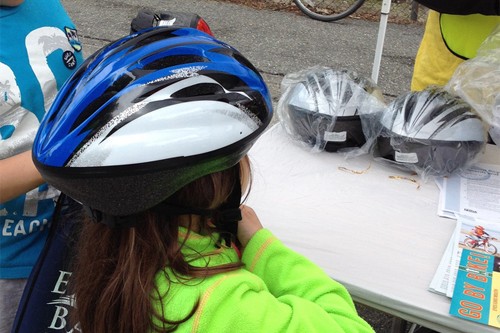Posts Tagged ‘attorney’
Breakstone, White & Gluck Supports Bike Safety Events in East Boston and East Arlington
Boston has some hard-working community bike programs which help children and their families learn the rules of safety. We recently supported two of these community groups, Boston Bikes and East Arlington Livable Streets Coalition.
Boston Bikes Bike Giveaway in East Boston. On June 12, the Boston Bikes’ Roll It Forward program gave away 40 bikes to children at the Orient Heights Boston Housing Authority Development. Children ages 5-7 were invited to sign up to receive a bike. Boston Bikes collects and repairs used bikes to distribute through its Roll It Forward program, which serves Boston residents who do not have access to a bike.
Children who participated received a new bike along with a new bike helmet. Attorney Sam Segal of Breakstone, White & Gluck helped fit the children for new helmets and spoke to them about the importance of wearing one while riding. Then, the Boston Bikes staff and volunteers taught the children safe riding techniques. Afterward, each child received a certificate showing they had completed safety training.
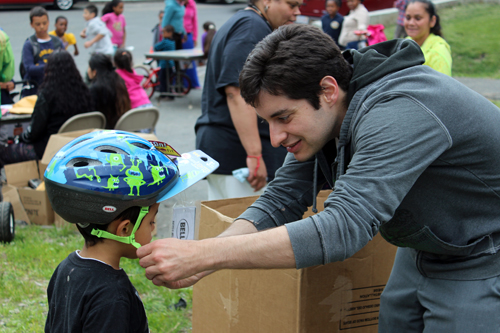 Attorney Sam Segal of Breakstone, White & Gluck helps fit bike helmets at a Boston Bikes event at Orient Heights Boston Housing Authority development.
Attorney Sam Segal of Breakstone, White & Gluck helps fit bike helmets at a Boston Bikes event at Orient Heights Boston Housing Authority development.
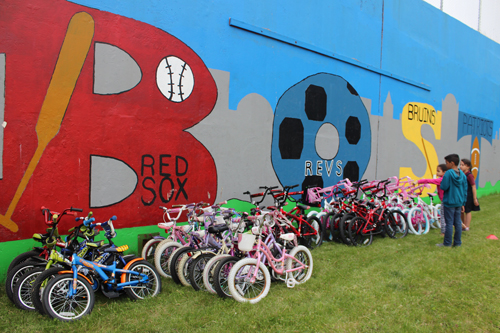 Boston Bikes event at Orient Heights Boston Housing Authority development.
Boston Bikes event at Orient Heights Boston Housing Authority development.
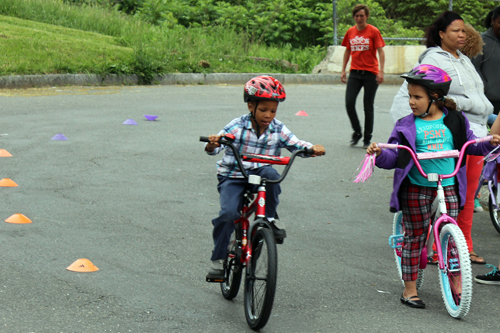 Boston Bikes event at Orient Heights Boston Housing Authority development.
Boston Bikes event at Orient Heights Boston Housing Authority development.
Thompson School in East Arlington. On June 4, the East Arlington Livable Streets Coalition organized a bike safety training for 98 fourth- and-fifth graders at Thompson elementary school. A representative from MassBike spoke to the children about safe riding techniques, proper helmet fitting and bike maintenance. Phil Goff of the East Arlington Livable Streets Coalition also spoke to the children about wearing bike helmets and safety. Breakstone, White & Gluck donated bike helmets to children who showed up without one or needed one that properly fit.
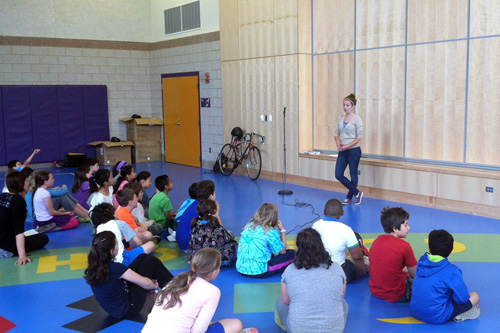 East Arlington Livable Streets Coalition event at Thompson School in East Arlington.
East Arlington Livable Streets Coalition event at Thompson School in East Arlington.
Learn more about Boston Bikes’ Roll It Forward and East Arlington Livable Streets Coalition.
Read More
Bike Helmet Donations in Worcester and Lexington
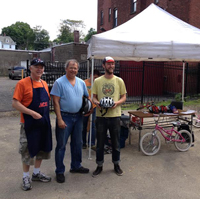 This spring, Breakstone, White & Gluck donated bike helmets to children in several Massachusetts communities, including Boston, Arlington, Framingham, Westborough, Worcester and Lexington. We write about two events here.
This spring, Breakstone, White & Gluck donated bike helmets to children in several Massachusetts communities, including Boston, Arlington, Framingham, Westborough, Worcester and Lexington. We write about two events here.
Worcester Earn-a-Bike. On May 31, attorney David White pitched in at the Worcester Earn-a-Bike’s 4th Annual Kids Bike Sale. Worcester Earn-a-Bike is a community program which teaches fun and affordable bike repair to neighborhood youth and community members. It operates a bike shop which repaired many of the bikes on sale.
At the sale, families got to purchase refurbished bikes for children for just $5! We donated helmets to children who needed one at the sale. Visit the Worcester Earn-a-Bike website to learn more about their work.
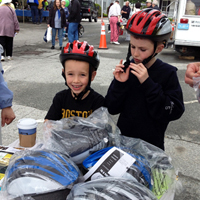 Friends of Lexington Bikeways. On May 24, we donated bike helmets to children through the Friends of Lexington Bikeways and Discovery Day in Lexington.
Friends of Lexington Bikeways. On May 24, we donated bike helmets to children through the Friends of Lexington Bikeways and Discovery Day in Lexington.
If you live in Lexington, you are probably familiar with the Friends, who work to preserve and maintain the Minuteman Commuter Bikeway and other shared use paths. They work closely with the Lexington Bicycle Advisory Committee and each winter, they clear the bikeway of snow for cyclists, cross country skiers and others.
By the way, congratulations to the Friends, the Lexington Bicycle Advisory Committee and the Town of Lexington!
In May, the League of American Bicyclists recognized Lexington as a Bronze Level Bicycle Friendly Community. The League has recognized 303 bicycle friendly communities in the U.S. Massachusetts now has seven communities on the list, including Lexington, Boston, Cambridge, Somerville, Newton, Arlington and Northampton.
Lexington’s application was coordinated by Bicycle Advisory Committee chair Peggy Enders, who also coordinated our donation to the Friends of Lexington Bikeways. Read what she told the Lexington Patch about town’s new recognition.
Visit the Friends of Lexington Bikeways’ website to learn more about their work.
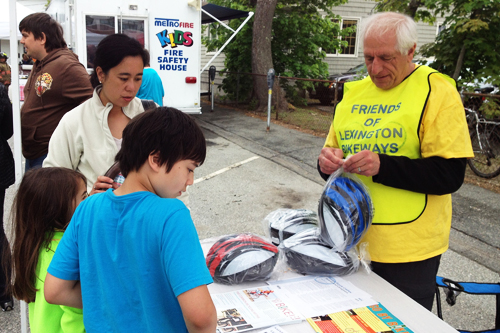
Unsafe Magnet Toys Buckyballs are Finally Recalled
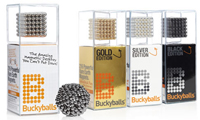 We have written in the past about Buckyballs, a dangerous magnetic desk toy which has injured too many children. Last week came another development, which we hope finally removes this unsafe product from circulation.
We have written in the past about Buckyballs, a dangerous magnetic desk toy which has injured too many children. Last week came another development, which we hope finally removes this unsafe product from circulation.
On May 12, the U.S. Consumer Product Safety Commission (CPSC) announced a voluntary recall for all Buckyballs and Buckycubes. The recall settles an administrative case filed by the CPSC in July 2012. As part of this, Craig Zucker, the former chief executive officer of Maxfield & Oberton Holdings, agreed to establish a Recall Trust. Consumers will be able to request a refund from this fund, which will be controlled by the CPSC. The agency also urges the public to stop using these defective products immediately and look for loose pieces.
Maxfield & Oberton Holdings began selling Buckyballs in 2009. The company said the magnetic desk toy was intended for adults. The problem is if a child starts playing with the tiny magnets, they can swallow them. The magnets can attract inside a child and cause painful intestinal injuries. Surgery is often required and there can be serious longstanding health consequences, such as children having to consume food through a feeding tube.
The CPSC first worked with the company to improve warning labels. The products were marketed for children “Ages 13+” and the CPSC said they should have been marketed for age 14 and up. The company agreed to recall 175,000 magnetic toys and made the change. But the injuries continued. In July 2012, the CPSC filed a lawsuit asking the company to stop sales altogether, a rare legal action the agency has only taken four times in 11 years. The agency alleged that Buckyballs and Buckycubes contained, “a defect in the design, packaging, warnings and instructions, which pose a substantial risk of injury to the public.”
Maxfield & Oberton refused to recall Buckyballs and Buckycubes and in December 2012, the company went out of business. But it was vocal about disagreeing with the CPSC and posted this message on its website:
“Due to baseless and relentless legal badgering by a certain four letter government agency, it’s time to bid a fond farewell to the world’s most popular adult desk toys, Buckyballs and Buckycubes. That’s right: We’re sad to say that Balls & Cubes have a one-way ticket to the Land-of-Awesome-Stuff-You-Should-Have-Bought-When-You-Had-the-Chance.”
In April 2013, six retailers voluntarily recalled Buckyballs and Buckycubes while the CPSC kept trying to raise awareness about the dangers of Buckyballs and other magnetic toys. It established the Magnet Information Center as a consumer resource. Between 2009 and 2011, the CPSC estimates there were 1,700 ER-treated magnet ingestion cases related to high-powered magnet sets.
Zucker will have to eventually fund a website, where consumers can apply for a refund.
Related:
Buckyballs and Buckycubes High-Powered Magnet Sets Recalled Due to Ingestion Hazard; Craig Zucker To Fund A Recall Trust, Settles With CPSC, Consumer Product Safety Commission.
Read More
Nearly 50 Massachusetts Workers Lost Their Lives on the Job in 2013
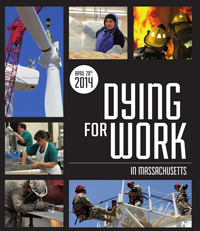 A new report shares hard numbers for Massachusetts workers. In 2013, 50,000 workers were seriously injured on the job and 48 others were killed in workplace accidents. An estimated 480 workers also died from occupational disease, such as cancer from workplace exposure to hazardous materials.
A new report shares hard numbers for Massachusetts workers. In 2013, 50,000 workers were seriously injured on the job and 48 others were killed in workplace accidents. An estimated 480 workers also died from occupational disease, such as cancer from workplace exposure to hazardous materials.
The 2014 “Dying for Work in Massachusetts” report has been released by the Massachusetts Coalition for Occupational Safety and Health (MassCOSH) and the Massachusetts AFL-CIO, which organize the annual Workers’ Safety Memorial Day. On April 28, workers, families of victims, advocates and state officials gathered at the Massachusetts State House for the 26th annual observance.
48 Workers Killed in 2013. The construction industry remains one of the most dangerous, with 11 workers killed in construction accidents in 2013. Workplace falls killed nine workers, causing one-fifth of all occupational fatalities in Massachusetts. Nine other Massachusetts workers were killed by machines and equipment. Workplace violence took the lives of five more workers, including a teacher, a police officer, a livery driver and two store workers.
Commercial fishing accidents killed two fishermen. MassCOSH considers this to be the most dangerous single occupation in Massachusetts. Since 2000, 60 people have died in this work.
The figure also includes nine firefighters who were killed by work-related cancers and heart disease and three servicemen who died in the War in Afghanistan.
Occupational Disease. MassCOSH reports on occupational disease which can develop after an employee is exposed to hazardous materials and dangerous dust. Because symptoms do not immediately present, some conditions are left untreated. Statewide, 480 workers died from occupational disease last year, while another 1,800 were diagnosed with cancers for the first time.
Immigrant Workers. More immigrants died at work last year. In 2012, nine percent of on-the-job deaths were immigrants. In 2013, this figure increased to 19 percent – or nine workers. MassCOSH reports the state’s immigrant workers come from all over the world, including Sir Lanka, El Salvador, India, Angola, Vietnam, Ireland, Cape Verde and Algeria.
Older Workers Face Greater Risk. Workers over age 40 were also at greater risk. The average age of workers who died was 49. The majority – 56 percent – were age 50 or older. Workers over age 60 accounted for 17 percent workplace deaths and construction accident deaths.
OSHA Would Need 123 Years to Fully Investigate in Massachusetts. MassCOSH says OSHA lacks proper funding to investigate and with current resources, would need over 123 years to investigate every Massachusetts workplace under its jurisdiction.
Fines Are Too Small. MassCOSH says fines do little to deter companies from taking safety risks. In 2013, OSHA investigated the deaths of four workers in Massachusetts. All but one settled for $10,000 or less, with an average fine of $6,577.
Related Resources
To learn more, read the MassCOSH annual report, “Dying for Work in Massachusetts: The Loss of Life and Limb in Massachusetts Workplaces.” Page 9 is an “In Memoriam” tribute to the workers who died in 2013.
About Breakstone, White & Gluck
The Boston injury lawyers at Breakstone, White & Gluck support MassCOSH in its work to strengthen laws for worker safety. Our attorneys have over 100 years combined experience representing injured individuals in Massachusetts, including those who have been seriously injured or killed in construction accidents. If you or a loved one have been injured, it is important to learn your rights. For a free legal consultation, contact us at 800-379-1277 or 617-723-7676 or use our contact form.
Breakstone, White & Gluck Donates 100 Bike Helmets, Partners with the Westborough Bicycle and Pedestrian Advisory Committee
Cycling safety became a fun lesson in Westborough last weekend, as 100 children learned a few basics about the road and got to take home new bike helmets.
 The Westborough Bicycle and Pedestrian Advisory Committee and attorney David White handed out the bike helmets on Saturday at the Westborough Spring Festival and the Boroughs Family Branch of the YMCA of Central Massachusetts.
The Westborough Bicycle and Pedestrian Advisory Committee and attorney David White handed out the bike helmets on Saturday at the Westborough Spring Festival and the Boroughs Family Branch of the YMCA of Central Massachusetts.
Breakstone, White & Gluck donated the helmets and will donate more at several other events in the Boston area this year. Our goal is to encourage bike helmet use to reduce the risk of head injury among children. This is the second year we have donated bike helmets to children and our first year working with the Westborough community.
“It was a pleasure to work with the Westborough Bicycle and Pedestrian Advisory Committee, the Westborough Rotary, and the Boroughs Family Branch of the YMCA of Central Massachusetts,” attorney David White said. “We were able to quickly fit 125 bicycle helmets on young kids–and an occasional parent too!”

Each year, 26,000 children and adolescents sustain traumatic brain injuries related to cycling and are treated in U.S. hospital emergency rooms. In 2010, children and teenagers under the age of 20 accounted for about half of all 515,000 bicycle-related injuries in the U.S.
The Westborough Bicycle and Pedestrian Advisory Committee’s mission is to explore ways Westborough can become safer for pedestrians and cyclists, work to develop a rail trail along an old trolley line in town and advise the Board of Selectmen on roadway safety issues and preventing bicycle accidents. In addition, the committee is working to encourage private and community investment in bike racks and signage.
Photos: Top: Bruce Tretter and members of the Westborough Bicycle and Pedestrian Advisory Committee and attorney David White of Breakstone, White & Gluck at the Westborough Spring Festival. Bottom: Attorney David White at the Boroughs Family Branch of the YMCA of Central Massachusetts.
Visit our Bike Safety Outreach page to learn more about our bike helmet donation events.
Breakstone, White & Gluck Participates in Framingham Earth Day, Donates 150 Bicycle Helmets to Children
Our attorneys partnered with the Framingham Bicycle and Pedestrian Advisory Committee to bring helmets to the community.
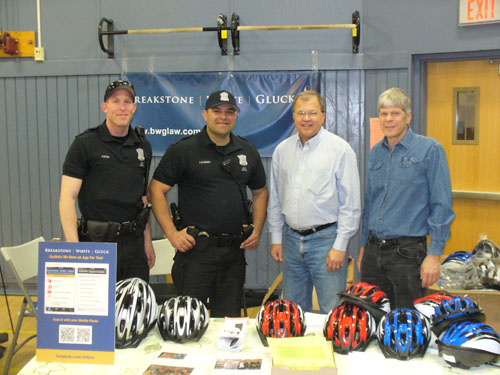
Photo from left to right: Officer Garret Coffin, Det. David Loureiro, attorney David White of Breakstone, White & Gluck, and Ed Kross, member of the Framingham Bicycle and Pedestrian Advisory Committee
Crowds packed the Framingham High School gym for the fourth annual Framingham Earth Day Festival on Saturday. There were 70 vendors offering products and services related to promoting an environmentally-friendly lifestyle. Breakstone, White & Gluck participated by donating 150 bike helmets to help children ride safely.
Breakstone, White & Gluck worked with the Framingham Bicycle and Pedestrian Advisory Committee to coordinate the donation. Attorney David White participated in the event, along with Bill Hanson, chair of the advisory committee and committee members Ed Kross, Stacy Lee and Ben Gustafson. Police Officer Garret Coffin and Detective David Loureiro of the Framingham Police Department also helped distribute the helmets.
Breakstone, White & Gluck, a Boston personal injury law firm, is donating bike helmets to children through a number of cycling organizations this year. This is the second year we have made these donations. Our goal is to provide local children access to bike helmets which properly fit to reduce the risk of head injuries.
Of all cyclists, children are most at risk for injury. According to the Centers for Disease Control and Prevention, each year, children ages 5-14 and young adults ages 15-24 have the highest rates of non-fatal bicycle related injuries. They account for 60 percent of all bike-related injuries seen in U.S. hospital emergency rooms.
We offer several cycling safety resources on our website. Visit www.bwglaw.com/project-kidsafe/ for information on a cyclist’s rights and responsibilities under Massachusetts law.
We have also written an article about how cyclists can protect themselves by purchasing extra coverage on their car insurance policy.
Boston Bikes’ Roll It Forward Program Kicks Off A New Season of Helping Children Ride Safely
The Boston Bikes’ Roll It Forward program has kicked off another season of important and fun work. On Tuesday, Roll It Forward gave away 59 refurbished bikes to children ages 5-7 who needed one. The donation was part of “Bike Day” at the West Broadway housing development in South Boston and is one of many Boston Bikes will organize this year.
Children at the housing development were asked in advance if they wanted to receive a bike. On Tuesday, they waited in line, got to choose a new bike helmet, and then were presented with a bicycle refurbished just for them. They also got to meet Boston Mayor Martin Walsh, who helped hand out bikes and played basketball with the kids.
From there, the children got to practice on an obstacle course with help from volunteers, as their parents, grandparents and friends cheered them along. There was plenty of activity for other cyclists too. Boston Bikes was selling $5 subsidized memberships for the Hubway bike share program and provided free safety inspections for 31 cyclists. Another 10 residents used the event to give back, by donating their own bikes to help Roll It Forward.
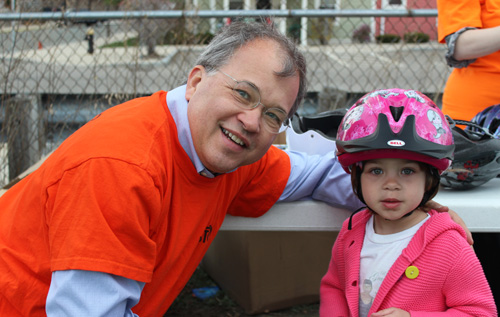
Photo: Attorney David White shown volunteering for the Boston Bikes’ Roll It Forward event on April 22, 2014. He helped children select bike helmets and made sure they properly fit.
Breakstone, White & Gluck is in its second year of supporting Boston Bikes’ Roll It Forward. This year, we are donating bike helmets for children, along with bike locks and bike lights. Cyclists are required to use bike lights if they cycle at night (defined under the law as thirty minutes after sunset until thirty minutes before sunrise).
“We are so happy to support Boston Bikes,” attorney David White said. “The program does an amazing job gathering, fixing, and giving away the bicycles. The kids know this is a special event and they really pay attention, including to when we explain the importance of always wearing a bike helmet to help prevent head injury.”
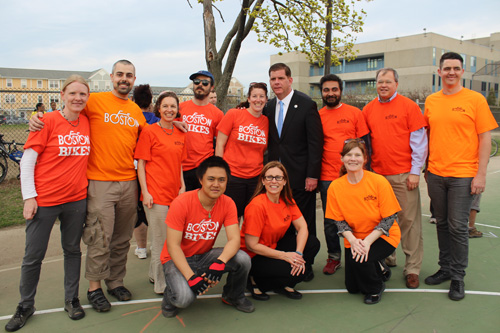 Photo: Boston Mayor Martin J. Walsh with Nicole Freedman, Director of Boston Bikes, Jenny Duquette, community programs manager, and Boston Bikes staff and volunteers, including attorney David White. April 22, 2014.
Photo: Boston Mayor Martin J. Walsh with Nicole Freedman, Director of Boston Bikes, Jenny Duquette, community programs manager, and Boston Bikes staff and volunteers, including attorney David White. April 22, 2014.
About Breakstone, White & Gluck
Breakstone, White & Gluck, a Boston personal injury law firm, is pleased to partner with Boston Bikes. Our attorneys encourage all cyclists to wear bike helmets to reduce the risk of serious head injuries while riding. According to the Centers for Disease Control and Prevention, bicyclists face a higher risk of crash-related injuries than drivers and occupants of motor vehicles. Children ages 5-14 and young adults ages 15-24 account for 60 percent of all bike-related injuries seen in U.S. hospital emergency rooms.
In 2013, we were proud to donate over 1,000 bike helmets to children in the Boston area. We are donating even more helmets this year. To learn more about our bicycle safety outreach, visit www.bwglaw.com/project-kidsafe/. We also invite you to follow our Facebook page.
Fourth Season Begins for Boston’s Hubway Bike Share Program
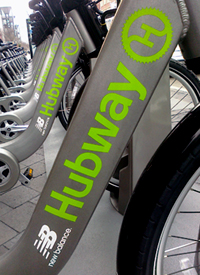 Hubway, Boston’s popular bike share program, launched its fourth season earlier this month. Four years shows a lot of ground covered for the program.
Hubway, Boston’s popular bike share program, launched its fourth season earlier this month. Four years shows a lot of ground covered for the program.
Hubway was launched on July 28, 2011, as a partnership between the City of Boston and Alta Bicycle Share, with 600 bikes at 60 rental stations. The program has been a big success and this season, riders will share 1,300 bikes at 140 bike rental stations in Boston, Cambridge, Somerville and Brookline. The program hit the 1,500,000-rider mark last Thanksgiving, then closed out 2013 with nearly 10,000 annual subscribers (and that’s not counting the short-term memberships).
In the past, Boston split both operating costs and profits with Alta Bicycle Share. Boston paid for its share using private sponsorships and public grant money.
But Boston is now venturing out on its own. Under a new contract, Boston will fund all operating costs and pay Alta Bicycle Share for services. The city will buy all services for a lower rate, about 30 percent less. For each bike dock, this translates into about $70 per month for maintenance and operations. This is lower than other U.S. programs, such as the Capital Bikeshare in Washington D.C., which pays $111 per bike dock.
This is good news and comes at a time when other cities are struggling to pay the bills for their bike shares. Montreal’s bike-share program filed for bankruptcy in January and New York City’s bike program recently asked officials for millions of dollars in aid.
In addition to seeking public grants and private sponsorship, Boston has kept costs down by closing bike racks for the winter. However, this past winter, Cambridge sites were kept open as a pilot test program.
What is new with Hubway this season:
Cambridge. The city kept Hubway racks open throughout this winter, as part of a pilot program. The system saw an average of 2,000 Hubway trips per week, with no injuries or incidents reported. Six new stations are expected to open this season.
Boston. Ten new Hubway stations are expected in Jamaica Plain and Dorchester this year.
Boston bike helmets. The program asks all riders to agree to wear helmets in their rental contract and has partnered with city businesses to offer subsidized helmets in the past. Last fall, it tested the first bike helmet vending machine in Back Bay, on the corners of Boylston and Massachusetts Avenue. The vending machine holds three dozen helmets and accepts returns.
Bike helmets are required for cyclists age 16 and under in Massachusetts. In addition to requiring use for Hubway cyclists, Boston city officials have discussed the possibility of passing a local law mandating use by all cyclists to protect riders from the risk of long-term head injuries in bicycle accidents.
Brookline. The city will re-open the same four stations in Coolidge Corner, Washington Square and Brookline Village.
Somerville. Somerville will open 12 stations this year. One change is the Ball Square station will be moved to Magoun Square.
Read More
Toyota, GM and Mazda Make New Headlines for Safety Recalls
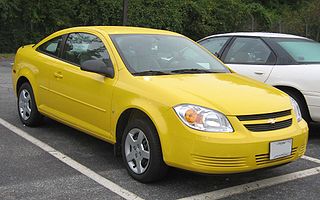 Toyota issues its second largest safety recall ever while GM CEO addresses Congress and Mazda reports a new web of problems
Toyota issues its second largest safety recall ever while GM CEO addresses Congress and Mazda reports a new web of problems
Toyota has more bad news for drivers. Just a few weeks ago, Toyota agreed to pay a record $1.2 billion criminal penalty to the federal government. The Japanese automaker, which has recalled over 9 million vehicles worldwide in recent years, recalled another 6.4 million vehicles on Wednesday for steering, airbag and other safety defects. This is the company’s second largest single recall announcement. Toyota states that it is not aware of any crashes or injuries involving these defects.
In March, Toyota agreed to pay the $1.2 billion criminal penalty to federal government for misleading consumers and the government about unintended acceleration in its cars and trucks. The Justice Department had charged Toyota with wire fraud, but agreed to defer the criminal charge for three years while the company submits to government monitoring.
This week’s recalls involve 27 Toyota models, including the RAV4 and Yaris. The largest recall involves 3.5 million vehicles which have defective spiral cables that can be damaged when the steering wheel is turned. Other defects involve a seat rail that can be pushed forward in a crash, as well as faulty steering column brackets, windshield wiper motors and engine starters.
GM ignition defects draw Congressional inquiry. Last week, General Motors CEO Mary Barra was questioned by Congress about faulty ignition switches in GM vehicles, and about her company’s slow response to protecting the public after learning about at least 13 deaths linked to the defect. GM has recalled over 2.5 million vehicles which may be equipped with the faulty ignition switch.
A week later, the National Highway Traffic Safety Administration (NHTSA) is waiting on more answers from General Motors. It reports the company has failed to respond to more than a third of its written questions. The company is being fined $7,000 each day for failing to fully respond, and the NHTSA is expected to hand the matter over to the Justice Department shortly.
Spiders and hoses and gas, oh my! Mazda also issued a recall this week, one involving an unusual, but familiar safety problem. For the second time in three years, Mazda has recalled 42,000 Mazda6 sedans. This recall involved vehicles from 2010, 2011 and 2012.
The problem is the yellow sac spider. The spiders are attracted to the smell of gasoline and can weave a web in the evaporative fuel hose, causing pressure to build up in the fuel tank. Too much pressure can cause fuel tank cracks, leaks and fires.
In 2011, Mazda had recalled 65,000 Mazda6s from 2009 and 2010 for this defect. The car manufacturer attempted to remedy the defect by installing a spring inside the vehicle’s fuel line, but recently reported nine cases in which this was not adequate. The company is not aware of any fires due to the defect, but will now notify car owners. The remedy requires checking of the evaporative canister vent line and software reprogramming.
Read More
Attorney David White Receives Volunteer of the Year Award from Boston Bikes
Attorney David White was recognized for his contributions to Boston’s cycling community at last night’s 6th Annual Boston Bike Update, which was held in the historic Faneuil Hall in Boston.
White, an attorney at Breakstone, White & Gluck, received the Volunteer of the Year award from Boston Bikes, the city office which oversees the growth of safety infrastructure, the Hubway bike share facilities, and programs for youth and low-income residents. White was honored alongside Bikes Not Bombs of Jamaica Plain, which received the Organization of the Year award. Jon Ramos was named Rookie Advocate of the Year and Vineet Gupta was Unsung Hero of the Year.
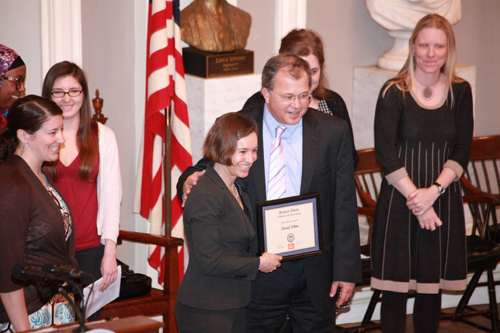
Photo credit: LivableStreets/www.livablestreets.info. Attorney David W. White of Breakstone, White & Gluck and Nicole Freedman, Director of Boston Bikes, during the 6th Annual Boston Bike Update at Faneuil Hall.
Jenny Duquette, Community Cycling Program Manager, introduced White:
“Our Volunteer of the Year is a former president of the Massachusetts Bar Association and a trial lawyer at Breakstone, White, & Gluck, which donated 160 helmets to Roll It Forward in 2013.”
“Like any superstar volunteer, he wanted to have an impact, so last year he volunteered at several bike giveaways as our helmet station guru – getting the kids excited about their new helmets, while making sure they got a helmet that actually fit! This year, his firm is donating helmets, locks, and light sets.”
Boston Bikes and Roll It Forward
Roll It Forward collects, repairs and distributes bikes to low-income Boston residents who might not otherwise have access to one. The program’s goal is to promote a healthier lifestyle with increased physical activity and fewer trips by car. As of January 2014, the program had distributed 2,728 bicycles. It plans to donate 850 more in 2014. In one very busy two-year period, the city’s youth cycling program gave safety classes to over 7,770 youth.
Former Mayor Thomas Menino established Boston Bikes in 2007 by hiring transportation planner and former Olympic cyclist Nicole Freedman. At that time, Boston only had 60 yards of bike lanes and was frequently cited as the worst city in the country for cyclists.
Today, the city has 60 miles of bike lanes. Boston Bikes is working to expand the network by adding a variety of new bike lanes, including new cycletracks, which will put a barrier between bike lanes and cars. The Hubway program, which launched in July 2011, continues to grow with more bike stations in Boston as well as Cambridge, Somerville and Brookline. And the program strongly encourages use of helmets, by asking riders to agree to wear helmets in the Hubway contracts, partnering with businesses to offer subsidized helmets and opening the first-in-the-nation helmet vending machine in Back Bay.
Related:
Watch the Boston Bike Update.
Read more about Boston Bikes.
View Facebook photos of the 6th Annual Boston Bike Update.
Read More


